Quick Takes of the Week to August 22
In case you missed it: News bites for the week.
In case you missed it: News bites for the week.
Electricity generator and retailer Contact Energy has reported a 40% increase in net profit for the year to June from revenue of $3.4 billion.
The result included a $98 million non-cash gain from reversing a previous onerous contract provision on its Ahuroa gas storage facility.
Contact said the change reflected the rising value of gas and improved confidence in its ability to access all the stored gas.
Excluding the Ahuroa change, underlying net profit was up 13% to $261m.
The board declared a partially imputed final dividend of 23c a share, talking the full year payout to 39c.
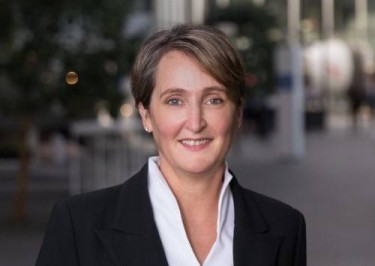
Vanessa Hudson – a no-show at court.
ASX-listed airline Qantas has been fined A$90m ($98m) for illegally sacking 1800 workers during the pandemic lockdowns.
The Federal Court announced the fine today, with the judge ordering that A$50m of the fine be paid to the Transport Workers’ Union, which represented the ‘under the wing’ employees and initiated the legal action.
Justice Michael Lee said the penalty, which was just under 75% of the maximum, should "send a message" to Qantas and other employers that breached the Fair Work Act.
Lee said that, while he accepted Qantas was sorry, he was unconvinced about its measure of regret and said the airline’s attitude was the "wrong kind of sorry".
Today’s decision comes after Qantas had already agreed to pay A$120m to the sacked workers, whose jobs were replaced with lower-paid staff.
Justice Lee criticised Qantas chief executive Vanessa Hudson for failing to appear in court, saying she was "uniquely placed" to assist the court in determining the matter.
Milk processor Synlait has confirmed talks on selling its Pōkeno plant, without naming the buyer. ‘The Australian’ reported late yesterday that US company Abbott Labs was the potential purchaser. The Pōkeno plant’s loss-making milk processing operations were shut down last year although it still produces plant-based products. Abbott is understood to have been a customer of the Pōkeno operation.
In a statement to the NZX, Synlait said discussions were incomplete, no binding terms had been agreed, and there was no certainty a transaction would occur.
“Synlait will provide any further updates to the market to the extent required in accordance with its continuous disclosure obligations but will not otherwise respond to any further media speculation,” it said.
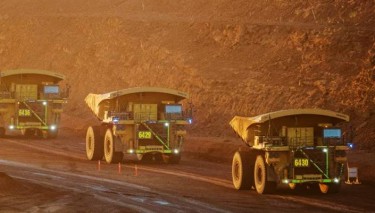 Profits at ASX-mining giant BHP have fallen by 26% and the company has slashed its dividend to the lowest level in eight years.
Profits at ASX-mining giant BHP have fallen by 26% and the company has slashed its dividend to the lowest level in eight years.
BHP’s underlying full-year profit came in at US$10.2b ($17.2b), but this was ahead of forecasts and the shares moved higher on the ASX today, up 0.5% to A$41.69 ($45.66).
Revenues were 8% lower at US$51.3b.
The company conceded it is under financial pressure, partly driven by lower prices for coal and iron ore, and said it could delay development of new mines while the production of coal could also be wound back in Queensland.
BHP will pay shareholders a final dividend of US60 cents a share, bringing the full-year dividend to US$1.10.
Lower oil prices have driven a 24% fall in half-yearly profits at ASX-listed Woodside Energy.
Australia’s largest oil and gas producer today reported underlying net profit of A$1.25b ($1.37b) for the half year to June 30, with the result also hit with depreciation costs of A$773m on a project in West Africa.
Operating revenue was higher, up 10% to A$6.59b.
Woodside declared a lower dividend of A53 cents, down from A69 cents in the same period last year.
The company also flagged the likely sale of part of its stake in an LNG project in the US state of Louisiana, and said it was talking with potential partners.
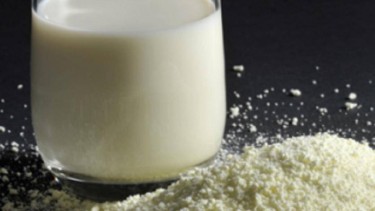
Dairy prices held steady at the latest overnight auction, with key export commodity whole milk powder up just 0.3% to US$4036 per metric tonne, marking the third consecutive rise. Most other products recorded price drops, including butter and skim milk powder. The overall GDT index declined 0.3% to US$4291 per metric tonne, following two modest gains in recent weeks. ASB economist Wesley Tanuvasa said cheese and butter prices remained elevated relative to a year ago. “It’s pleasing to see prices holding up well for contracts for New Zealand product in the key months ahead – this is especially true as primary exporters remain a stronghold of the economic recovery.” Last month, dairy giant Fonterra said its New Zealand milk collection for the first month of the 2025/26 season was 16.6 million kilograms of milk solids, up 15% on June last season. In late May, the company announced an opening forecast Farmgate Milk Price for the new season of $10kg of milk solids.
Infratil shareholders protested an increase in directors' fees at the investment company’s annual meeting on Tuesday, with 28.5% of votes rejecting the resolution. The measure, approved by 71.5% of votes, awards a $121,500 increase in the directors’ fee pool to $1.65 million, including a $50,000 increase, taking the chair’s fees to $425,000. There was a smaller rebellion against proposals allowing the company to pay fees to its manager Morrison in shares rather than cash, with 10.5% of votes against. Resolutions re-electing Alison Gerry, Kirsty Mactaggart and Andrew Clark as directors were overwhelmingly approved by 94.6%, 99.8% and 99.8% respectively.
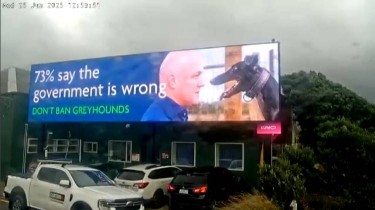
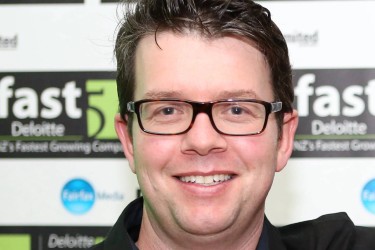
Rod Macfarlane.
Dairy co-op Fonterra has raised its expected milk price payout for the season ending in May this year to $10.15 a kg of milk solids, up from a mid-point of $10 announced in March. Fonterra said the final amount would be confirmed in September when it announced its results for the year to July. “We began the season with a wide forecast range to account for potential volatility in commodity prices and exchange rates resulting from geopolitical dynamics,” said chief executive Miles Hurrell. “However, Global Dairy Trade prices have remained stable, and when coupled with our well-contracted sales book, we have been able to increase our forecast Farmgate Milk Price across the season.” Fonterra maintained its forecast price for the current 2025/26 season at $10 a kg, but narrowed the potential price range to $9-$11, from $8-$11 previously.

The Litmaps app.
Wellington startup Litmaps has finally closed an over-subscribed $1.4 million funding round with the last-minute addition of a $400,000 investment from Australian private investment company No Brand, owned by Ari and Lucy Klinger. Ari Klinger is an entrepreneur who was a founding partner of VC firm Right Click Capital and co-founder of FounderCo, which works directly with entrepreneurs. Litmaps’ seed round was led by UK-based Scholarly Angels, which put in $600,000, and was also supported by existing investors Icehouse Ventures, Quidnet Ventures, K1W1, and Volpara founder Ralph Highnam. Litmaps was founded in late 2020 by Axton Pitt, Digl Dixon and Kyle Webster to help researchers, scientists, and students globally use tech-based tooling to fast-track their research and innovation. The money raised is helping fund the purchase of US rival research tool ResearchRabbit, which has increased its global user base from about 500,000 to more than two million and doubled ARR to $1m.
The Serious Fraud Office has charged a former Open Country Dairy (OCD) group market manager for allegedly receiving more than $250,000 in financial kickbacks. The SFO alleges Simon Stewart provided sensitive price information and assistance to an OCD customer, Indonesia dairy trader PT Anta Tirta Kirana, for which he received undisclosed payments. It is alleged that between April 1, 2019 and October 10, 2023, Stewart received 27 payments from Anta Tirta totalling $276,668.92 as payment for the information and assistance he provided. The individual payments ranged from $6980 to $22,767.08. Stewart appeared in the Manukau District Court and faces one representative charge under section 4 of the Secret Commissions Act. He is next scheduled to appear in court on October 7. Primarily owned by the Talley’s Food Group, OCD is New Zealand’s second-largest milk processor and the world’s second-largest exporter of whole milk powder.
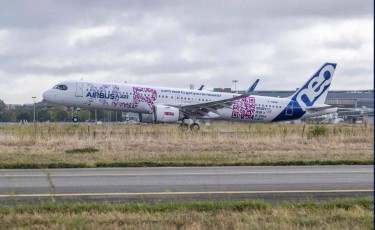
An Airbus A321XLR.
The Government is to spend $2.7 billion replacing the Defence Force’s maritime helicopters and ageing 757 jets. The helicopters will be replaced by five MH-60R Seahawk helicopters, and the 757s by Airbus A321XLRs. “This decision will ensure New Zealand has a critical combat-capable, interoperable and dependable fleet,” Defence Minister Judith Collins said. The maritime helicopters will cost $2b, while the new Airbus aircraft will cost $700 million. The helicopters will be procured directly through the United States’ Foreign Military Sales programme instead of going to a wider tender, and the Airbuses would be acquired on a six-year lease-to-buy arrangement. “New Zealand needs reliable aircraft to deploy our personnel, deliver military equipment and humanitarian aid, support the evacuation of civilians, and transport government trade and diplomatic delegations quickly, over long distances, and often at short notice,” Collins said.
NZX-listed Colonial Motor Co has reported a higher full-year net profit and steady revenue as it cautions the ongoing economic downturn is still affecting parts of the market.
Its net profit in the year ended June rose to $18.3 million, compared with $4.5m last year. Revenue was flat at just over $1 billion.
The firm’s ‘trading profit’ came in better than expected at $17.8m, the same as last year.
Chair Ashley Waugh said vehicle trading had been patchy, with new passenger cars, light commercial vehicles, and trucks affected by the sluggish economy. On the other hand, used car operations reported strong growth, and the heavy truck business had a difficult year.
He said the addition of Chinese brand JAC Motors progressed in a “very competitive” market. “We remain confident the ongoing commitment to the JAC brand is an important strategic investment in a Chinese-sourced product range.”
In terms of the outlook, economic and global geopolitical instability would continue to hamper growth.

Sophie Moloney.
The new deal with NZ Rugby will start in January 2026 and run through to 2030.
It means Sky customers will have exclusive access to every All Blacks match played in SANZAAR countries, along with more Black Ferns games, and expanded coverage of club and domestic rugby competitions.
The deal also allows the All Blacks to play up to five offshore matches outside of scheduled competitions, with broadcast rights for those games to be negotiated on a match-by-match basis.
Sky chief executive Sophie Moloney is “delighted” to have renewed the longstanding partnership.
“While the terms of the deal are commercially sensitive, we’re confident that we’ve reached a position that is sustainable for Sky over the five-year term and which also supports the long-term health of rugby in New Zealand.”
Sky expects its total programming costs for FY26 will remain within its target range of 47-49% of revenue.
The agreement is conditional on shareholder approval by special resolution at Sky’s annual meeting.
South Port will pay a final dividend of 20.5 cents on the strength of a record net profit after tax for the June 2025 year of $13.3 million, up 81% on the prior year. Revenues for the Bluff harbour port were up 13% at $63.3m, underpinned by implementation of the ports' infrastructure levy. The dividend, payable on November 11, takes the full-year stipend to 28c. While cargo volumes from the NZ Aluminium Smelter at Tiwai wharf were down by a fifth to 811,000 tonnes, affected by the 50 megawatt demand response call agreed between NZAS and Meridian Energy, fertiliser volumes jumped 23% to 353 tonnes, with stock food also surging 74% to 563,000 tonnes on the back of a high dairy payout and wet spring conditions. Chief executive Nigel Gear said forestry exports had also rebounded, up 27% to 983,000 tonnes, with woodchip vessels benefiting from the increased draft of 10.5 metres, post dredging. Container volumes were steady at 52,300 twenty-foot-equivalent units.
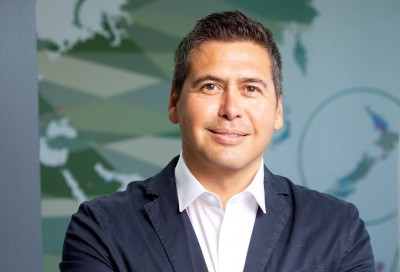
AJ Smith.
Trade Window Holdings has affirmed its revenue guidance at between $10 million and $11m for the year to the end of March 2026 ahead of its annual shareholder meeting this morning.
The NZX-listed trade software company also said it expects to be earnings before interest, tax, depreciation, and amortisation breakeven in FY26, and is "on track" to become a ‘Rule of 40’ company.
Founder and CEO AJ Smith said the company had sufficient capital to maintain current business operations and achieve its guidance, but noted that additional funds could further accelerate growth.
Smith said the competitive environment had fundamentally shifted over the past year, and the company was confident that, with a strong customer base and cloud solutions, combined with the AI-powered freight and logistics solution it is developing, it is positioned well for continued growth.
The company's AGM takes place online at 11am today.
Rakon has released fresh guidance showing it expects underlying earnings before interest, tax, depreciation, and amortisation to be in the range of $15 million to $24m for the financial year to the end of March 2026, up from $9.5m in FY25.
The NZX-listed company had only previously said it expected a "year-on-year improvement" but, in a market disclosure ahead of its annual shareholder meeting today it said the range was underpinned "by the strong rebound in revenue and profitability the company reported for the second half of FY25, which has carried into FY26".
It said it anticipates continued growth in its aerospace and defence segment, the "start of significant revenue" from its AI and cloud computing infrastructure business, and a "stabilising to recovering" telecommunications revenue stream.
Rakon said it had entered FY26 with a tighter cost base while still ensuring that its technological leadership is supported by ongoing investments in R&D. The company's AGM kicks off at 11am.
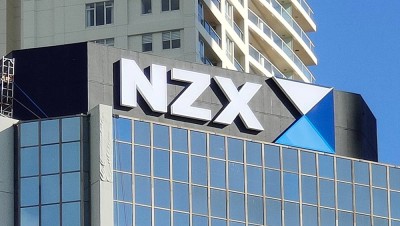 The New Zealand Stock Exchange operator is confident market confidence is returning after equity raising and trading activity was affected following the United States' imposition of global tariffs in April.
The New Zealand Stock Exchange operator is confident market confidence is returning after equity raising and trading activity was affected following the United States' imposition of global tariffs in April.
The NZX today reported its underlying net profit after tax for the six months ended June 30 was $8.3 million, up 0.9% on the same period a year ago. Operating earnings were up 5.4% to $24.1m, and an interim dividend of 3 cents a share was declared.
The company reaffirmed full-year operating earnings guidance of between $49m and $54m, adding on Friday that it was tracking towards the middle of that range.
“NZX’s results highlight our all-round strength as a market operator, funds manager and funds administration platform provider," chief executive Mark Peterson said. "Market confidence is returning and, as equity markets activity picks up, this will provide a positive outlook for the company."
Former financial adviser Marion Joan Pearson has appeared in an Australian court charged with stealing approximately A$4.1m ($4.5m) of client money.
Pearson was extradited from New Zealand after several years of appeals; she appeared in the Perth Magistrates Court today and was remanded in custody.
The New Zealand High Court ruled against her final appeal in May.
She is charged with appropriating the money from 13 clients between January 2009 and October 2013.
Pearson was banned from providing financial services in Australia by corporate regulator Asic in November 2013.
Sign up to get the latest stories and insights delivered to your inbox – free, every day.